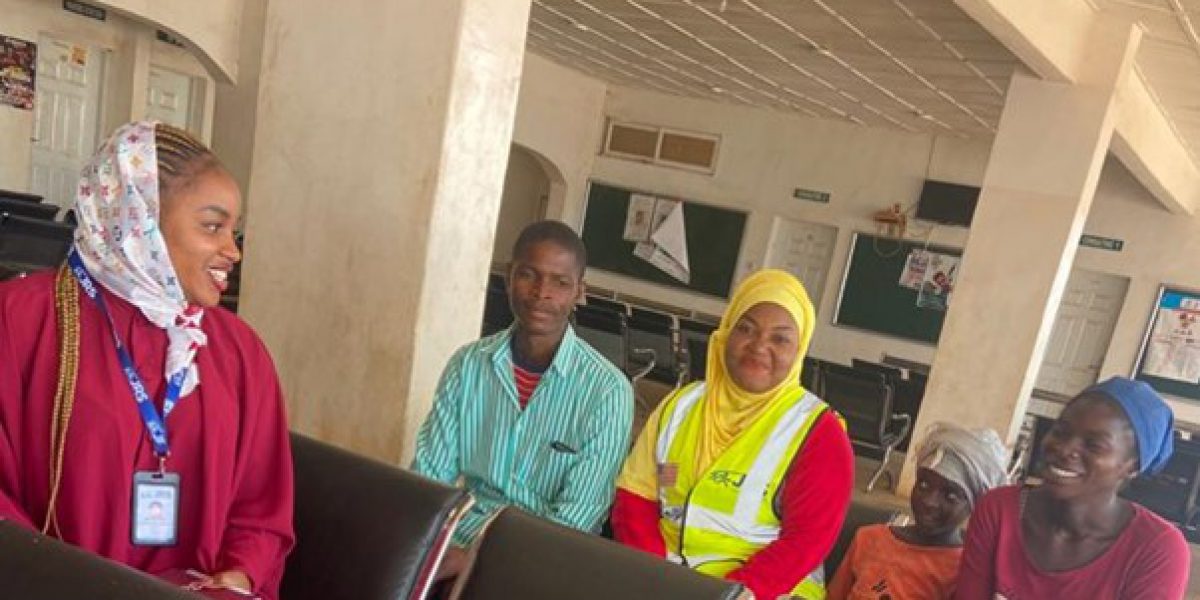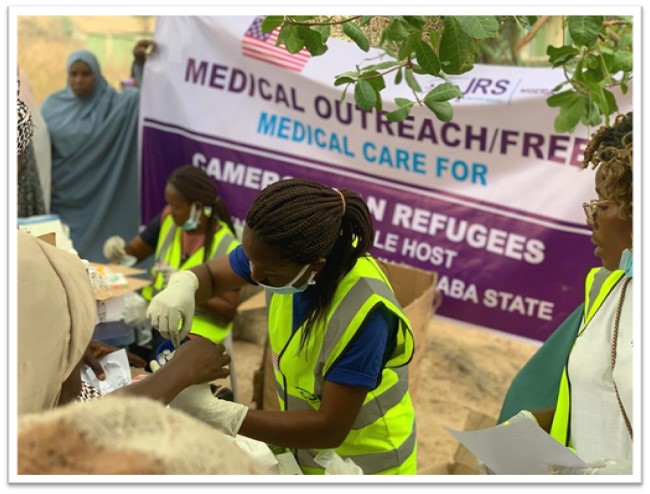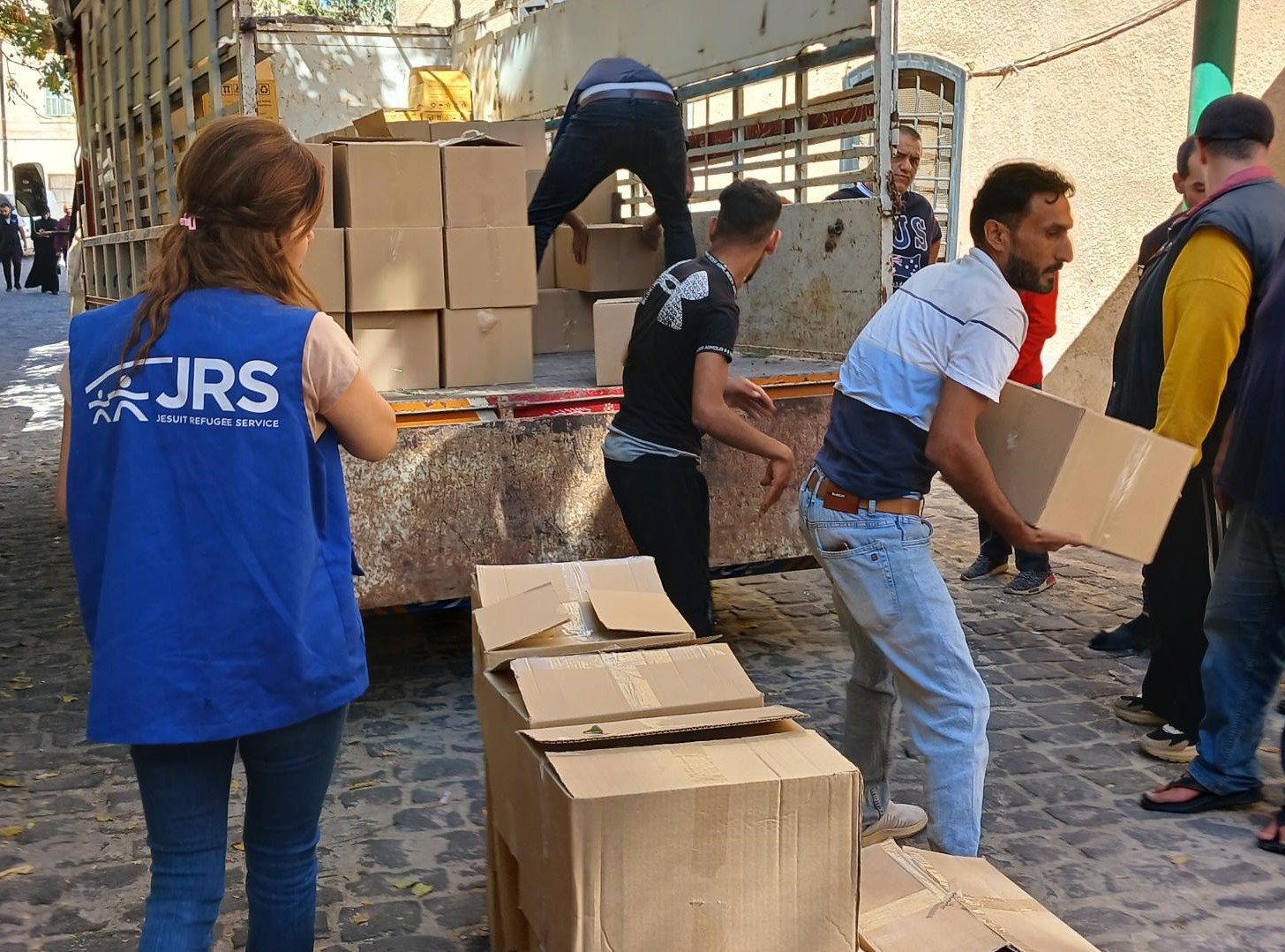JRS Nigeria & PRM: Hope & Health Protection in Taraba State
28 June 2021

Esha’s health was deteriorating when he fled from Adere, a small community in Western Cameroon, to the bordering town of Yerimaru, a village in Taraba State, Nigeria.
Suffering from an inguinal hernia for over a year, he could not receive appropriate medical care due to displacement caused by the Anglophone Crisis in Cameroon.
While living as a refugee the work as a daily assistant to a local chemist in Yerimaru was not enough to make ends meet in order to pay a treatment and support his wife, two children, and a brother.
“Even with the help of my brother, we could barely afford the rent for the little home where we lived in,” Esha says.

Esha then received a home-visit by the Jesuit Refugee Service (JRS) Health Intervention Community Based First-Aid Monitors — a program which started in October 2020 and will run through September this year. With JRS accompaniment and transportation fees, he could finally receive a medical diagnosis at the local clinic and the General Hospital in Gembu.
“The first-aid Monitoring Agent wrote on a paper, gave it to me and I left immediately for Gembu,” Esha remembers. “The doctor admitted me once I gave him the paper by JRS first-aid monitor and I was told that I would be going in for surgery on Wednesday.
The program currently serves over 2300 refugees through primary, secondary, and tertiary care. Medical awareness and outreach campaigns have contacted Cameroonians in hard-to-reach areas with a panoply of services, including counseling and medicine distribution.
After a successful surgery, JRS helped the family to pay for Esha’s food at the hospital.
Once discharged, he was asked to return for a follow up. “I tried to complain about the transportation and distance, but the doctor said the stitches must be removed so I had to look for a way,” Esha says.
“I explained this to the JRS Health Officer madam [Nenman Anne Gompang] when she came to see me, and she gave me money for transportation.”
In other cases, the medical supplies have ranged from screening and diagnostic test kits to hospital beds, microscopes, and centrifuges critical to administering quality care, like for dialysis patients.
Uchenna Okoro, Data and Communications Officer for JRS Nigeria, envisions that other Cameroonian refugees would take embrace this new opportunity in such a remote area of the country.
A couple of months later, Esha returned to the General Hospital for his follow-up visit without feelings of discomfort. He plans to continue fighting to bring the best for his family.
“I want to thank JRS health team and the entire JRS people for supporting me and feeding me during my stay in the hospital.”

